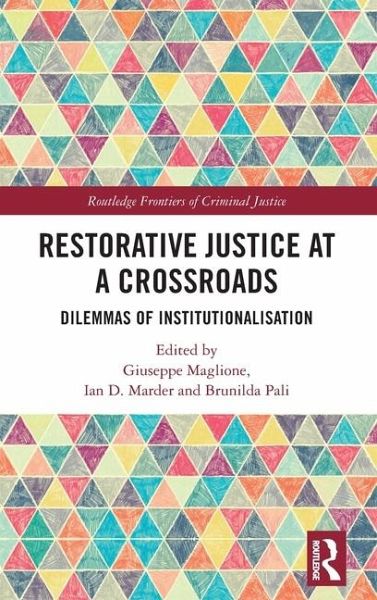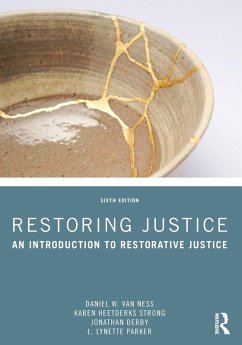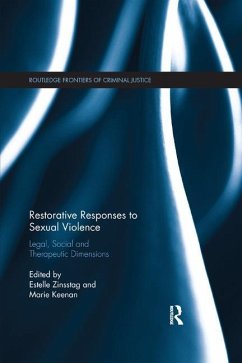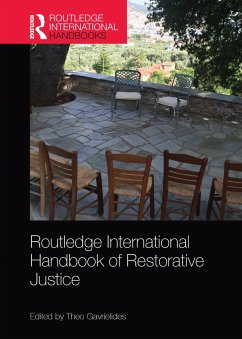
Restorative Justice at a Crossroads
Dilemmas of Institutionalisation
Herausgegeben: Maglione, Giuseppe; Marder, Ian D.; Pali, Brunilda
Versandkostenfrei!
Versandfertig in 6-10 Tagen
154,99 €
inkl. MwSt.

PAYBACK Punkte
77 °P sammeln!
This book reflects on the institutionalisation of restorative justice over the last 20 years and offers a critical analysis of the qualitative consequences generated by such a process on the normative structure of restorative justice, and on its understanding and uses in practice. Bringing together an international collection of leading scholars, this book provides a range of context-sensitive case studies that enhance our understanding of the development of international, national and institutional policy frameworks for restorative justice, the mainstreaming of practices within the criminal j...
This book reflects on the institutionalisation of restorative justice over the last 20 years and offers a critical analysis of the qualitative consequences generated by such a process on the normative structure of restorative justice, and on its understanding and uses in practice. Bringing together an international collection of leading scholars, this book provides a range of context-sensitive case studies that enhance our understanding of the development of international, national and institutional policy frameworks for restorative justice, the mainstreaming of practices within the criminal justice system, the proliferation of cultural, social and political co-optations of restorative justice and the ways in which the formalisation of the restorative justice movement have affected its values, aims and goals.














